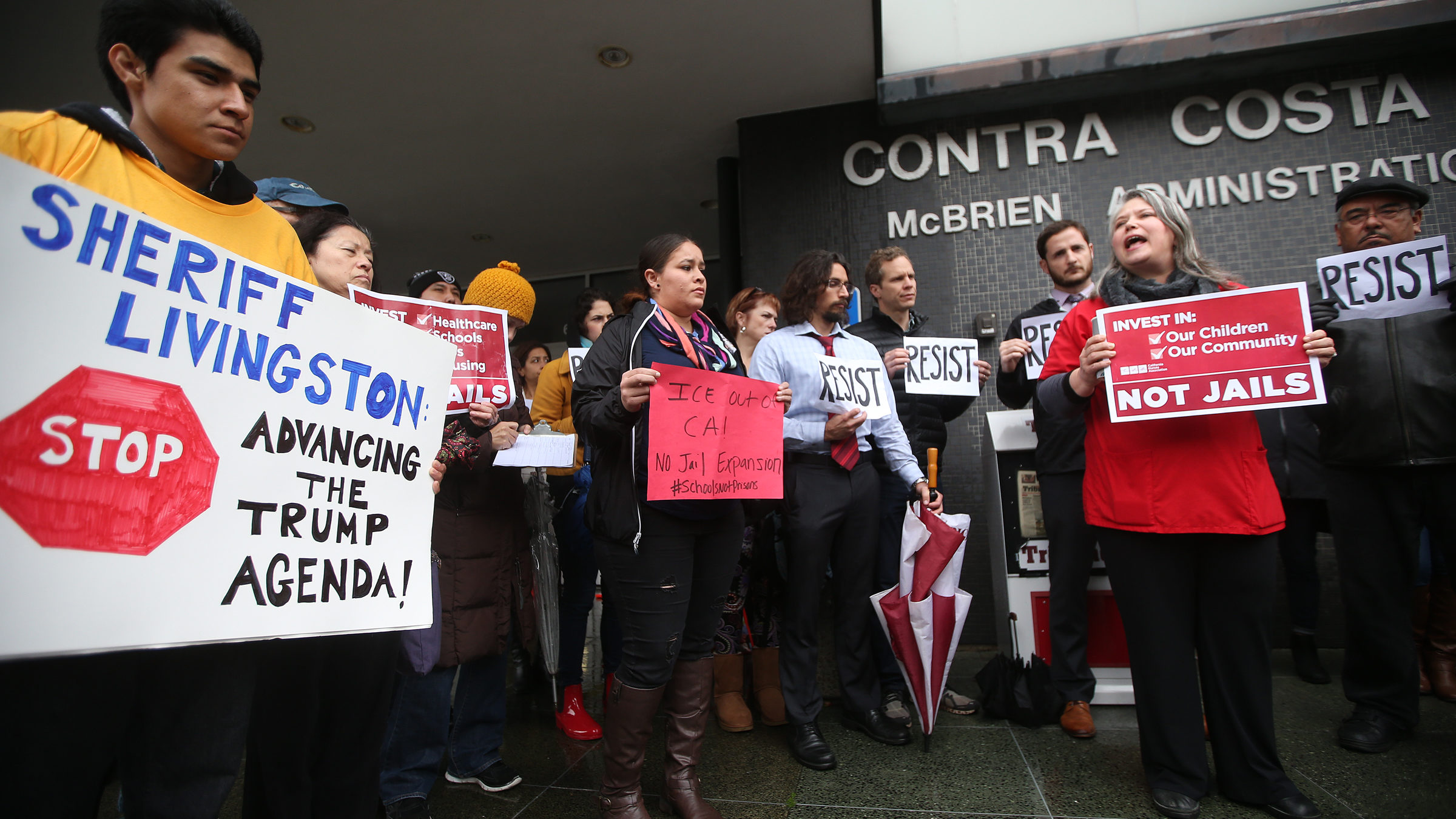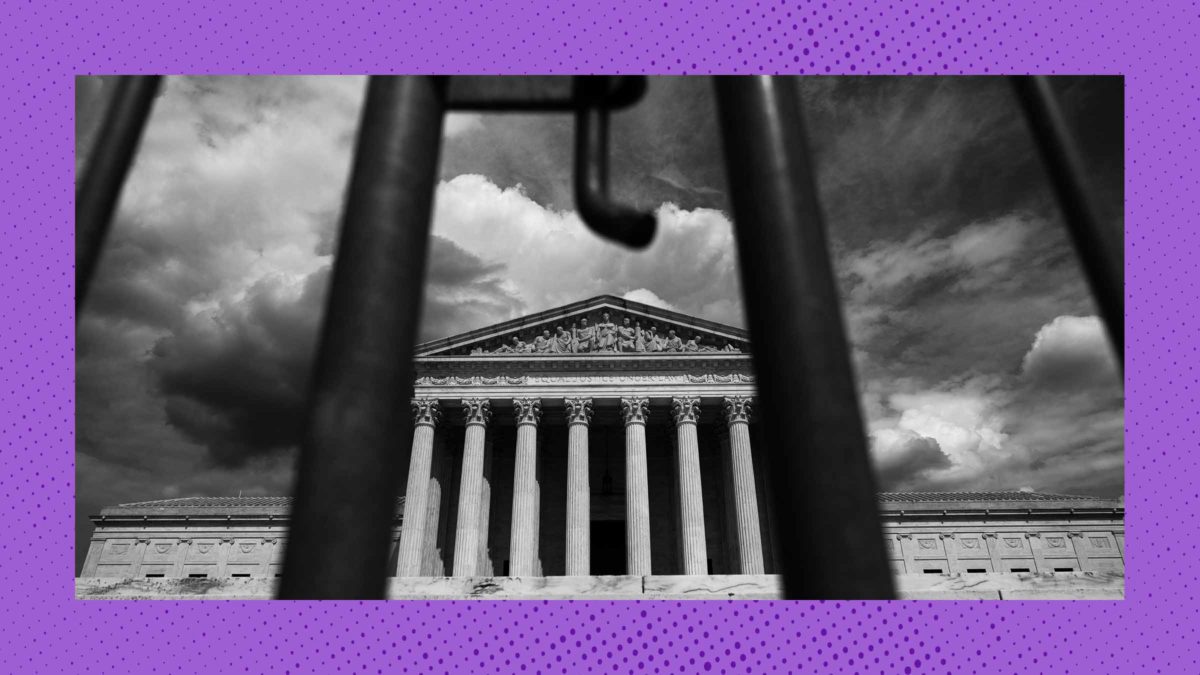On Tuesday, the Supreme Court will hear oral arguments in two cases, Johnson v. Arteaga-Martinez and Garland v. Gonzalez, about what types of legal protections are owed to immigrants who fear persecution, torture, and death if deported to their country of birth. In the process, the justices will decide whether the government can keep people in inhumane conditions for perhaps years on end, without affording them access to a single bond hearing.
Antonio Arteaga-Martinez, a native of Mexico, has crossed the border into the United States four times over the past two decades. While returning to the U.S. in 2012—he’d traveled to Mexico to visit an ill family member—immigration officers arrested and promptly deported him. Back in Mexico, he was beaten and robbed by gang members, who stole his car, left him bound and gagged, and threatened to kill him if he reported them to police. He again fled across the border, this time successfully. It was not until 2018, when he had lived and worked in the U.S. for six years and was expecting the birth of his first child, that immigration officers again arrested Arteaga-Martinez and again placed him in deportation proceedings.
Like Arteaga-Martinez, Esteban Aleman Gonzalez tried to enter the U.S. around the year 2000; an immigration officer recognized his fake identification documents and deported him that same day. Just a month later, though, Gonzalez fled to the United States after he was beaten by men affiliated with the Zeta drug cartel. He lived in the United States until 2017, when he was arrested at his Antioch, California home and placed in expedited deportation proceedings. At the time, he shared custody of and was the primary source of financial support for his two daughters, both U.S. citizens, ages 5 and 3.
Both men, citing the beatings they’d previously endured, told officials that they would be subject to further persecution if they were deported to Mexico. U.S. asylum law allows people to challenge their deportations if they fear torture or persecution if returned to their home country. Asylum officers found their claims credible and assigned them court dates to make their cases to an immigration judge.
A federal law passed in 1996, the Illegal Immigration Reform and Immigrant Responsibility Act (IIRIRA), requires that the Department of Homeland Security incarcerate most people who are awaiting deportation. As a result, Arteaga-Martinez was sent off to York County Prison in Pennsylvania. Earlier this year, York County ended its contract with ICE after former detainees spoke out about the abuses they endured: denials of medical care, insufficient food, and unsafe water. Migrants detained there were reportedly locked in their cells for 23 hours a day, unless they agreed to cook and clean for the facility for $1.40 per day.
Gonzalez, meanwhile, spent more than six months in a prison in Richmond, California. In 2018, the Contra Costa Sheriff’s Office terminated its lucrative contract with ICE amidst similar allegations of extended lockdowns and shoddy medical care. In 2019, a report from the California Attorney General’s found that the understaffed facility was unable to keep immigration detainees safe.

Community members protest Contra Costa County Sheriff David Livingston’s meeting with Attorney General-designate Jeff Sessions in 2017. (Aric Crabb/MediaNews Group/Bay Area News via Getty Images)
After six months of languishing in these conditions with no movement on their cases, Arteaga-Martinez and Gonzalez asked for bond hearings, during which they could ask to be released while awaiting their court dates. (The six-month period is borrowed from Zadvydas v. Davis, a 2001 Supreme Court case in which the justices decided that immigrants with final removal orders can petition for their release from custody after six months, since at that point the possibility of indefinite detention veers into unconstitutional territory.) Two federal courts of appeals agreed with Arteaga-Martinez and Gonzalez and affirmed that the government would have to provide clear and convincing evidence to justify their continued incarceration.
The government, however, is asking the Court to intervene, arguing that the logic of Zadvydas applies only in a very narrow set of circumstances that aren’t relevant to Arteaga-Martinez or Gonzalez. Moreover, the government argues, whatever process rights Zadvydas created, the current system in which detained people have to petition their deportation officer—yes, their jailer—for release is sufficient to satisfy the Constitution. A ruling against Arteaga-Martinez and Gonzalez would leave them to make their case from facilities plagued by medical neglect, sexual abuse, and the imposition of solitary confinement. More than half of people detained by ICE are held in remote, rural prisons, making effective legal representation exceedingly difficult to procure. Thanks to backlogged immigration courts, they often wait for years before a judge finally decides their fate.
Lost in the legal intricacies here is the simple fact that immigration detention—along with, incidentally, the entire deportation process—is not supposed to be “punishment” at all. (Deportation is a civil proceeding, not a criminal one.) Yet everyone who has stepped inside immigration detention centers, which are oftentimes literal county jails in deplorable conditions, understands this as a cruel joke. In an amicus brief, a coalition of immigrants’ rights organizations details the cascading consequences for immigrants and their families of this detention, which upends the “lives of citizens and noncitizens alike” and leaves relatives “struggling to make ends meet.”
The usual proffered justification for migrant detention—ensuring that no one skips out on court dates—also does not hold up to scrutiny. A 2021 analysis of ten years of immigration proceedings found that 83 percent of non-detained immigrants showed up to all of their court hearings; among immigrants with legal representation, the figure jumped to 96 percent. A group of former immigration judges has filed an amicus brief urging the justices to side with Arteaga-Martinez and Gonzalez, arguing that requiring bond hearings would “permit experienced judges to make informed judgments” about who is a flight risk and who is not.
Despite the legal system’s insistence to the contrary, forcing people to endure years of detention in order to exercise their right to appeal is undeniably punishment. People like Arteaga-Martinez and Gonzalez, who have families in the United States and promising legal claims that could allow them to stay together, want judges to hear their cases. They don’t need the violence of incarceration to motivate their attendance. How the Court resolves these cases will reveal a lot about how seriously the justices take their responsibility to ensure that basic fairness rules protect everyone in federal custody—and not only when the government finds it convenient.

